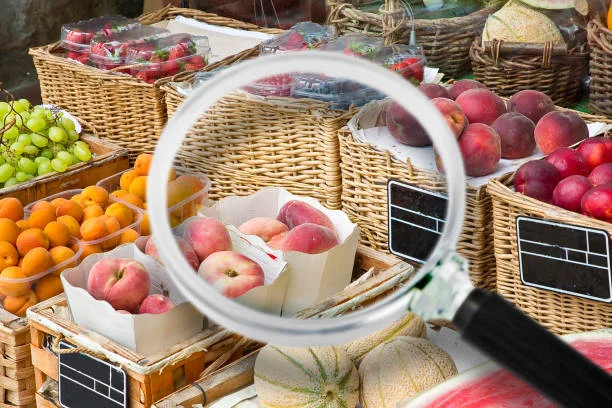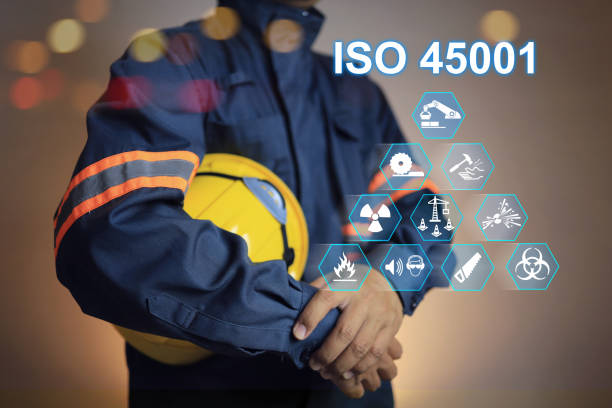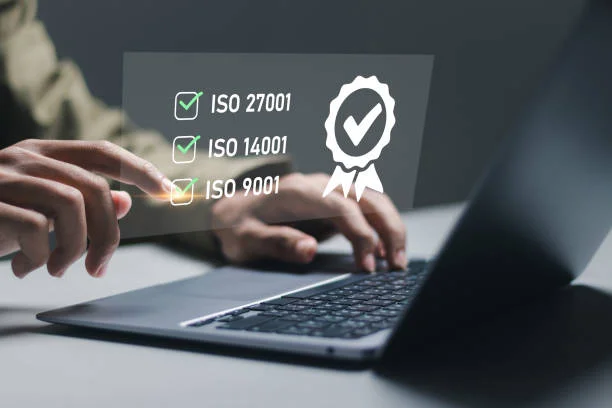ISO 22000:2018 Certification: A Complete Guide to Food Safety Management Systems
Ensuring food safety across the supply chain is essential for businesses operating in the food and beverage industry. The ISO 22000:2018 certification provides a globally recognized framework for managing food safety, enabling organizations to consistently deliver safe food products that meet regulatory requirements and customer expectations.
In this guide, we’ll dive deep into what ISO 22000:2018 certification entails, its benefits, and how organizations can achieve compliance to enhance food safety standards.
What is ISO 22000:2018?
ISO 22000:2018 is an international standard designed specifically for Food Safety Management Systems (FSMS). It outlines the requirements for organizations across the entire food supply chain, from production to consumption, to manage food safety hazards and ensure that the food they provide is safe for human consumption. The standard integrates principles from ISO’s management system approach (such as ISO 9001) and Hazard Analysis and Critical Control Points (HACCP), a system commonly used for managing food safety risks.
The scope of ISO 22000:2018 covers all entities involved in food production, processing, packaging, storage, transportation, and sales. The goal of the standard is to harmonize food safety management across borders, providing a single framework that businesses can implement to demonstrate their commitment to delivering safe food.
Key Features of ISO 22000:2018
ISO 22000:2018 integrates a process-based approach, risk-based thinking, and the Plan-Do-Check-Act (PDCA) cycle to continuously improve food safety management. Key elements of the standard include:
- Food Safety Hazard Control
ISO 22000:2018 requires organizations to identify, evaluate, and control food safety hazards throughout the food supply chain. This includes biological, chemical, and physical hazards that could pose risks to food safety. - HACCP Principles
The standard incorporates the seven HACCP principles, ensuring that organizations can effectively prevent, reduce, or eliminate food safety risks at critical points in the production and handling process. - Risk-Based Approach
A strong emphasis is placed on assessing and mitigating risks across all stages of food production, from raw material sourcing to the final consumer product. - Management System Approach
Like other ISO standards, ISO 22000:2018 follows a management system approach, ensuring that food safety is embedded into the organization’s overall business processes. - Continual Improvement
The standard encourages organizations to continually improve their food safety management systems, ensuring they adapt to changing food safety requirements and emerging risks. - Communication Along the Supply Chain
ISO 22000:2018 emphasizes the importance of communication across all stakeholders in the food chain, including suppliers, customers, and regulators. Effective communication helps identify food safety issues early and prevents them from reaching consumers.
Benefits of ISO 22000:2018 Certification
Achieving ISO 22000:2018 certification offers several significant benefits for organizations in the food industry:
- Enhanced Food Safety
ISO 22000:2018 certification ensures that your organization follows rigorous food safety management practices, reducing the risk of contamination or hazards in food production and distribution. - Regulatory Compliance
The standard helps organizations comply with global food safety regulations, such as those set by the Food and Drug Administration (FDA) in the U.S. and the European Food Safety Authority (EFSA) in the EU. Compliance with these regulations is critical for businesses seeking to operate in international markets. - Improved Customer Confidence
Certification reassures customers, retailers, and stakeholders that your food products are safe for consumption. This can enhance your brand’s reputation and foster customer loyalty. - Global Recognition
ISO 22000:2018 is recognized globally, enabling organizations to demonstrate their commitment to food safety in international markets. This is particularly beneficial for businesses involved in exporting or dealing with global supply chains. - Risk Mitigation
By identifying and managing food safety risks, ISO 22000:2018 helps organizations prevent costly recalls, foodborne illnesses, and legal liabilities. - Operational Efficiency
Implementing a structured Food Safety Management System can streamline operations, improve resource use, and reduce waste, resulting in cost savings. - Harmonized Food Safety Standards
ISO 22000:2018 helps align food safety standards across different countries and industries, making it easier for organizations to meet international food safety requirements.
Key Changes in ISO 22000:2018
The 2018 revision of ISO 22000 introduced several updates to make the standard more relevant and effective for modern food safety management:
- High-Level Structure (HLS)
ISO 22000:2018 follows the ISO High-Level Structure, making it easier to integrate with other ISO management standards like ISO 9001 (Quality Management) or ISO 14001 (Environmental Management). This allows organizations to streamline their management systems for efficiency. - Risk-Based Thinking
The updated standard emphasizes risk-based thinking, requiring organizations to assess both operational risks (related to food safety hazards) and business risks (related to strategic objectives). - The PDCA Cycle
ISO 22000:2018 uses two Plan-Do-Check-Act cycles: one for the management system as a whole and another specifically for the Hazard Analysis and Critical Control Points (HACCP) system. - Clearer Communication Requirements
The updated standard places greater emphasis on communication throughout the food chain, ensuring that relevant information about food safety risks and controls is shared effectively.
How to Achieve ISO 22000:2018 Certification
Obtaining ISO 22000:2018 certification requires careful planning and implementation. Here’s a step-by-step guide to help organizations achieve certification:
- Familiarize Yourself with ISO 22000:2018
Start by reviewing the requirements of ISO 22000:2018. The standard can be purchased from the ISO website and contains detailed information on how to establish and maintain a Food Safety Management System. - Conduct a Gap Analysis
Compare your current food safety practices with the requirements of ISO 22000:2018. Identify any gaps in your existing processes and develop an action plan to address them. - Develop and Implement a Food Safety Management System (FSMS)
Based on the results of the gap analysis, design and implement a Food Safety Management System that meets ISO 22000:2018 standards. This includes establishing policies, procedures, and controls for managing food safety hazards. - Train Your Team
Ensure that all relevant staff members are trained on ISO 22000:2018 requirements, including HACCP principles and food safety risk management. - Conduct an Internal Audit
Before applying for certification, conduct an internal audit to verify that your FSMS complies with ISO 22000:2018. Identify any non-conformities and take corrective actions. - Management Review
Senior management should review the FSMS to ensure its effectiveness and alignment with the organization’s strategic goals. - Select a Certification Body
Choose an accredited third-party certification body that offers ISO 22000:2018 certification services. The certification body will conduct an external audit of your FSMS. - Certification Audit
The certification body will carry out a detailed audit to determine whether your FSMS meets the ISO 22000:2018 standard. If your system complies with the requirements, you will receive the certification. - Surveillance Audits
After certification, regular surveillance audits are required to ensure ongoing compliance with ISO 22000:2018.
Who Should Get ISO 22000:2018 Certified?
ISO 22000:2018 is applicable to organizations of all sizes and sectors within the food supply chain, including:
- Food manufacturers and processors
- Farms and agricultural producers
- Catering and food service providers
- Food transportation and logistics companies
- Food packaging manufacturers
- Retailers and distributors
Whether you are a small food business or a multinational corporation, ISO 22000:2018 certification helps ensure that your products meet the highest food safety standards.
ISO 22000:2018 vs. FSSC 22000
ISO 22000 is a foundational standard for food safety management, while FSSC 22000 (Food Safety System Certification) is a more comprehensive scheme that builds on ISO 22000, incorporating additional requirements for food safety management systems. Many organizations opt for FSSC 22000 to meet the requirements of major retailers and food manufacturers, but ISO 22000:2018 serves as a robust framework on its own.
Conclusion
Achieving ISO 22000:2018 certification is an essential step for organizations seeking to demonstrate their commitment to food safety, build trust with customers, and comply with global food safety regulations. The standard provides a comprehensive framework for managing food safety risks, ensuring that food products are safe for consumption and meet international requirements.
If your business is in the food industry, ISO 22000:2018 certification can help you improve operational efficiency, reduce food safety risks, and enhance your reputation in the market.
Start your certification journey today and elevate your food safety management practices to the highest standard!







